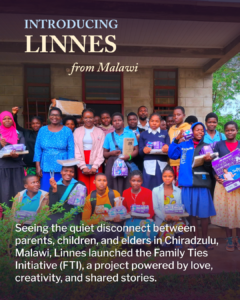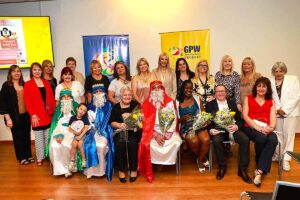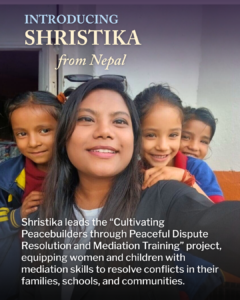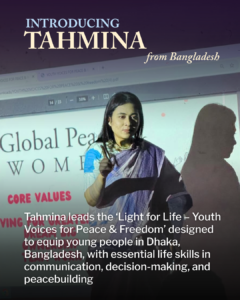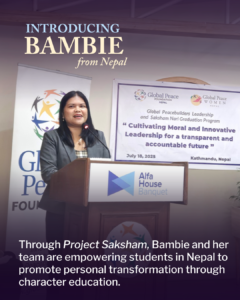The third session of Global Peace Women’s Korean Dream Study Series brought together young leaders from across the world to explore a powerful truth: peace begins with identity and family. Hosted by Tahmina Supti and guided by the insights of GPW President Hanako Ikeno and instructor Risa Perea, the Learning Circle offered knowledge and practical reflections on how families shape individuals, communities, and even nations.
“Every single one of you is a leader, a changemaker, and a voice for peace in your communities,” Tahmina reminded participants, setting the tone for a heartfelt, interactive session. With cameras turned on and smiles shared, the group began by affirming the importance of connection, both virtual and personal, before diving into the topic at hand.
At the heart of the discussion was the recognition that strong families form the bedrock of peaceful societies. “Peace starts with identity and family,” Tahmina emphasized. “When people know who they are, feel good about themselves, and have strong values, they are happier and less likely to cause trouble. And our families are our first school for learning how to care, solve problems, and live with others.”
Tying this to the vision of the Korean Dream, the session highlighted how unity on the Korean Peninsula, and indeed, around the world, must be rooted in strong individuals and families. As the Korean Dream aspires toward a reunified, peaceful Korea that contributes to global well-being, it reminds us that nation-building starts at home.
Participants shared inspiring stories of how they are putting these ideas into practice. Shristika from Nepal proudly spoke of involving her mother and grandmother in her campaign, even creating banners and flags to promote the message of unity and peace in rural areas. “Everything starts from home,” she said, highlighting how family support strengthens her work.
Similarly, Everline from Kenya discussed the challenges and triumphs of mobilizing both youth and families, noting how the younger generation is quick to engage, while older adults may be more cautious. Her reflections echoed a common challenge faced globally, how to bridge generational gaps while building movements for change.
A key part of the session explored family culture in Korea, with Risa Perea unpacking concepts like filial piety, the importance of respecting elders, and the deep connections within extended families. Yet she also pointed to growing challenges, such as declining marriage and birth rates and an increase in single-person households. This shift, she noted, reflects a broader erosion of family values that threatens social cohesion, and even dreams like Korean reunification.
“If young people struggle to commit to each other in family life, how can they commit to unification?” Risa questioned, citing research that shows loneliness, anxiety, and disconnection are on the rise among Korea’s youth, despite material prosperity.
The conversation broadened as participants shared cultural concepts similar to the Korean idea of “Han,” a process of internal growth that transforms pain, injustice, and suffering into love, forgiveness, and strength. From Nepal’s notion of “dhairyata,” reflecting deep patience, to the Islamic value of “Sabr,” or patience in suffering, and the Christian emphasis on forgiveness and peace, it was clear that across cultures, the family is where resilience, identity, and peace are first nurtured.
As the session concluded, the message was clear: true peace is built in the hearts of individuals, within families, and through the quiet, daily practices of love, respect, and unity.
The Korean Dream Study Series continues to offer a global platform for young leaders to reflect, learn, and act, starting from within, and to carry that transformation into their communities and nations. Global Peace Women is a partner of Global Peace Foundation, both of which are strong advocates for the peaceful reunification of the Korean peninsula.


